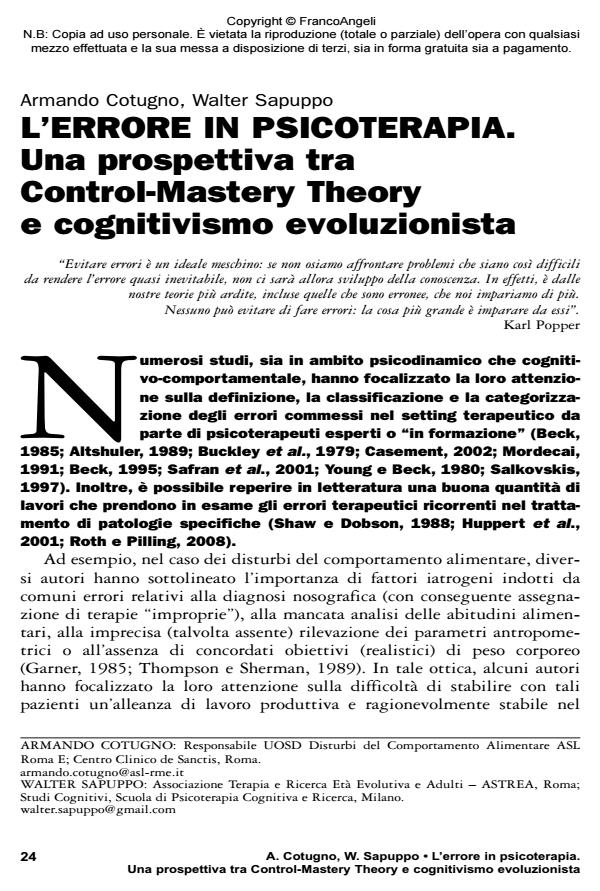The mistake in psychotherapy. A perspective between the control-mastery theory and the cognitive evolutionary therapy
Journal title PSICOBIETTIVO
Author/s Armando Cotugno, Walter Sapuppo
Publishing Year 2014 Issue 2014/1
Language Italian Pages 15 P. 24-38 File size 557 KB
DOI 10.3280/PSOB2014-001003
DOI is like a bar code for intellectual property: to have more infomation
click here
Below, you can see the article first page
If you want to buy this article in PDF format, you can do it, following the instructions to buy download credits

FrancoAngeli is member of Publishers International Linking Association, Inc (PILA), a not-for-profit association which run the CrossRef service enabling links to and from online scholarly content.
Both psychodynamic psychotherapy and cognitive-behavioral therapy consider the “error” as an important, even if controversial, issue. The Authors argue that a mistake can be considered as an event that affects the patient in a negative way (directly or indirectly) through the impairment of the course or quality of the therapy. The Authors examine different studies that present a classification of therapeutic mistakes, and that deal with the iatrogenic factors that can derive from distortions or lacks of therapeutic technique. The need for sharing systematic and empirically based criteria with which to evaluate the specialized skills and the ability of the therapist, as well as his personality characteristics, is discussed. The paper includes a number of clinical exemplifications and is informed by the theories associated with Cognitive Evolutionary Therapy Control-Mastery Theory.
Keywords: Error; Psychotherapy; Cognitive Evolutionary Therapy; Control-Mastery Theory; Therapeutic Alliance.
Armando Cotugno, Walter Sapuppo, L’errore in psicoterapia. Una prospettiva tra Control-Mastery theory e cognitivismo evoluzionista in "PSICOBIETTIVO" 1/2014, pp 24-38, DOI: 10.3280/PSOB2014-001003